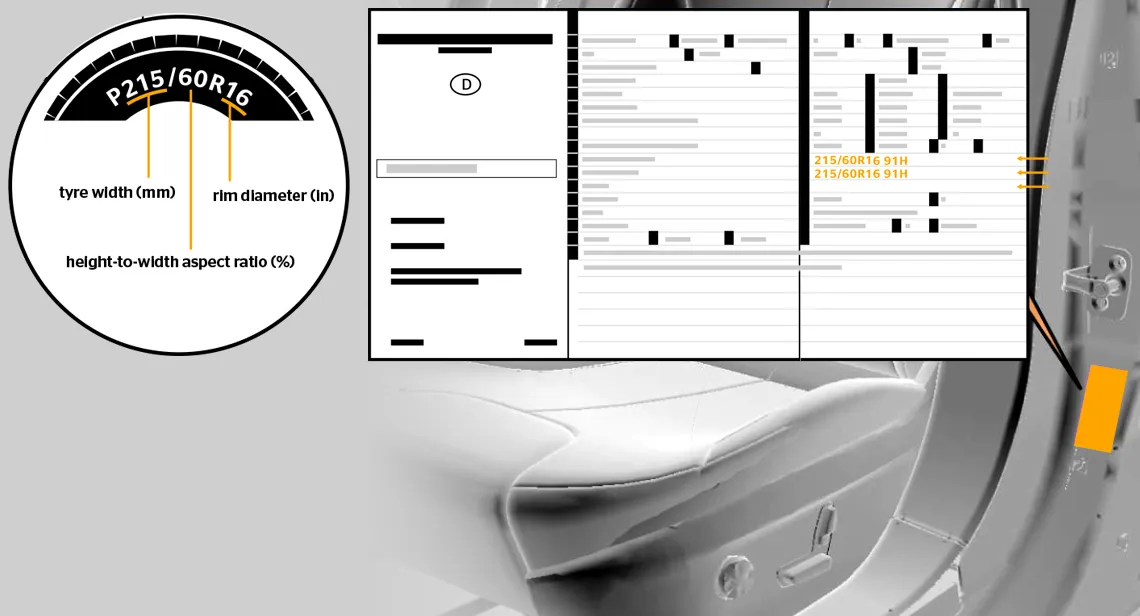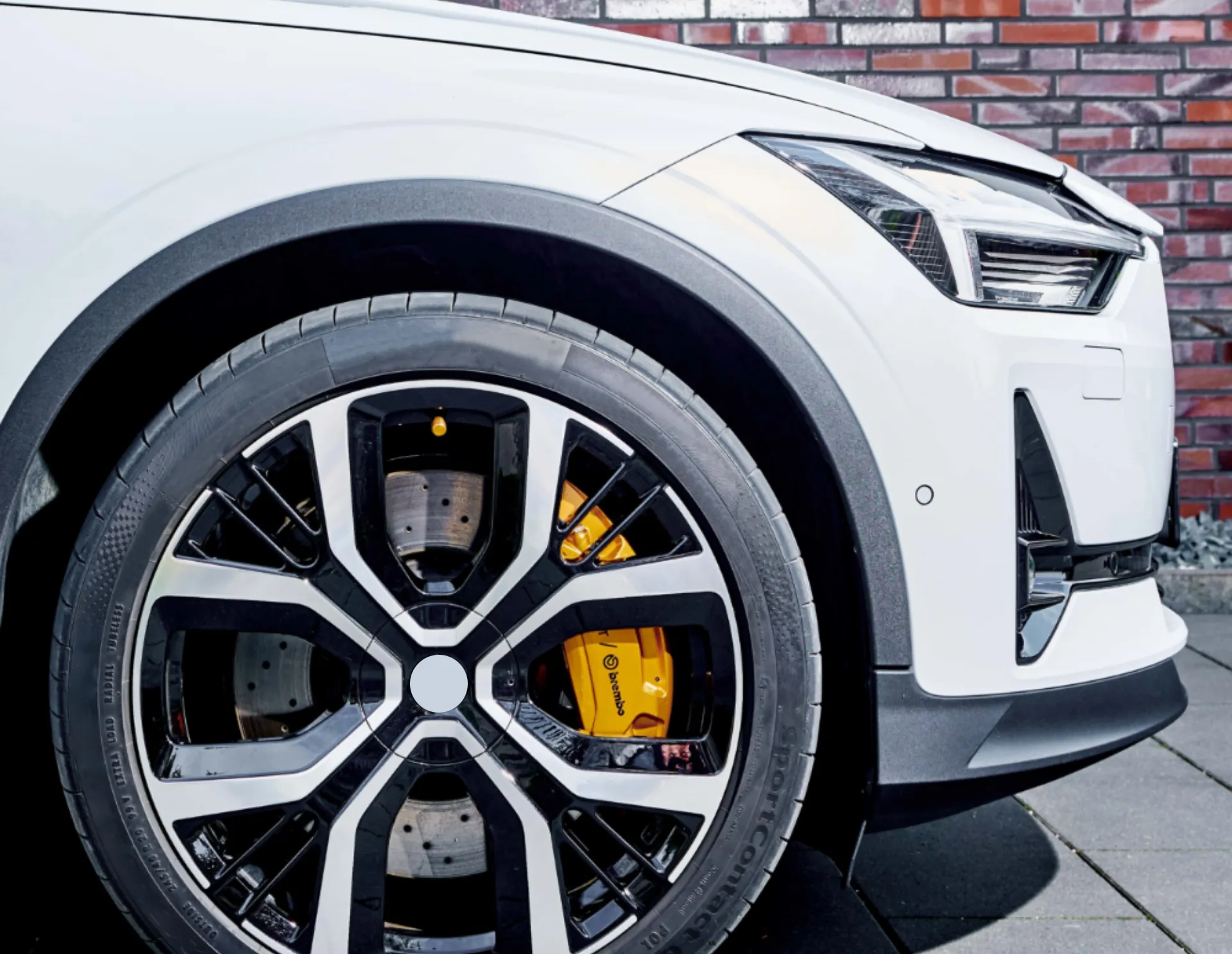
The tire industry in Bahrain is experiencing a transformative shift driven by advanced technologies like Artificial Intelligence (AI) and blockchain. These innovations are reshaping manufacturing processes, enhancing quality control, and improving supply chain efficiency. In this blog, we will explore how AI and blockchain are revolutionizing tire manufacturing, paving the way for a more efficient, transparent, and sustainable tire future.
AI refers to the simulation of human intelligence in machines that are programmed to think, learn, and solve problems. In tire manufacturing, AI algorithms process vast amounts of data to optimize production, enhance quality, and predict maintenance needs.
Blockchain is a decentralized digital ledger that records transactions across multiple computers. It ensures data integrity and transparency, making it ideal for managing complex supply chains in the tire industry.
.png)
AI in Tire Manufacturing
Optimizing Material Selection
AI algorithms analyze the properties of various rubber compounds to determine the best blend for specific tire models. This optimization leads to:
- Enhanced Fuel Efficiency: By selecting materials that reduce rolling resistance, AI helps improve vehicle fuel economy.
- Increased Durability: AI ensures that the tire composition withstands different road conditions, extending tire lifespan.
- Cost Reduction: Optimal material selection minimizes waste and lowers inventory costs.
Quality Control and Predictive Maintenance
AI systems monitor production in real-time, ensuring high-quality output by:
- Detecting Defects: AI identifies flaws in the production process, reducing the risk of faulty tires reaching consumers.
- Predictive Maintenance: By analyzing sensor data and historical patterns, AI predicts when equipment will require maintenance, minimizing downtime and costs.
Energy Efficiency
AI-driven systems optimize energy consumption during production. By analyzing energy use patterns, AI helps manufacturers reduce waste, lower costs, and enhance sustainability.
.png)
Blockchain in Tire Manufacturing
Supply Chain Transparency
The tire industry's supply chain is complex, often involving multiple organizations and countries. Blockchain technology offers:
- Tamper-Proof Records: It creates an unalterable record of transactions, enhancing trust and reducing disputes.
- Efficient Data Sharing: Seamless data exchange among manufacturers, suppliers, and vendors reduces delays and inefficiencies.
Secure Transactions
Blockchain ensures secure financial transactions by providing:
- Transparency: Every transaction is recorded on a shared ledger, eliminating concerns about record-keeping accuracy.
- Security: It enhances transaction security without adding administrative burdens, reducing fraud and errors.
Single Point of Consensus
With blockchain, all parties in the supply chain have access to a single version of the truth, which:
- Reduces Disputes: Shared data reduces transaction discrepancies.
- Simplifies Transactions: Especially useful for cross-border transactions, enhancing trust and efficiency.
.png)
Future Trends in Tire Manufacturing
Continental is leading the way in sustainable tire manufacturing by integrating innovative technologies and materials. The company utilizes sustainable materials such as silica derived from rice husk ash, carbon black recovered from end-of-life tires, and polyester made from recycled PET in its tire production. Notably, the UltraContact NXT is one of the most sustainable series tires, incorporating these advanced materials.
Through its ContiRe.Tex technology, Continental transforms recycled PET bottles into high-quality polyester yarn for its tires, with each tire using between nine and fifteen bottles, depending on the size. Looking ahead, Continental has set ambitious goals to use over 40% renewable and recycled materials in its tires by 2030, with an ultimate aim of achieving 100% sustainable materials by 2050. This commitment to sustainability extends beyond materials, as the company continues to advance smart, digital tire solutions and services to further enhance its environmental impact.
AI-Driven Tire Design
AI is set to revolutionize tire design by:
- Customization for Conditions: AI can analyze data from various sources to tailor tires for specific road conditions, weather, and vehicle types. This ensures optimal performance, safety, and durability.
- Enhanced Performance: By predicting how different designs perform under specific conditions, AI helps create tires that offer better grip, handling, and fuel efficiency.
- Customer Satisfaction: Tailored designs meet the unique needs of drivers, improving overall satisfaction and brand loyalty.
Blockchain for Traceability
Blockchain technology enhances transparency and accountability by:
- Detailed Product Origins: Consumers increasingly demand to know where products come from. Blockchain provides a secure, tamper-proof ledger that traces each step from raw material to final product.
- Trust and Accountability: By offering full traceability, blockchain builds consumer trust and ensures manufacturers adhere to ethical and environmental standards.
- Efficient Supply Chains: Improved traceability reduces the risk of counterfeit products, streamlines logistics, and enhances supply chain efficiency.
Collaboration with IoT
Integrating AI and blockchain with IoT creates a connected tire ecosystem:
- Smart Tire Communication: IoT-enabled tires can monitor and report their condition, wear, and maintenance needs in real-time. This proactive approach enhances vehicle safety and performance.
- Predictive Maintenance: Continuous data from smart tires allows for timely maintenance, reducing the risk of blowouts and extending tire life.
- Seamless Ecosystem: The integration of AI, blockchain, and IoT results in a cohesive system that enhances operational efficiency, reduces costs, and improves the driving experience.
Conclusion
AI and blockchain are revolutionizing tire manufacturing by enhancing efficiency, transparency, and quality. These technologies are not just transforming production processes but are also setting new standards for customer satisfaction and sustainability.
As AI continues to evolve, its role in material optimization, predictive maintenance, and custom design will drive significant advancements. This will lead to tires that are not only more efficient but also more durable and tailored to specific driving needs. The integration of AI into manufacturing processes ensures that tires meet the highest performance standards, reducing waste and costs while boosting innovation.
Blockchain technology, on the other hand, provides unparalleled transparency and traceability. By creating a secure, tamper-proof record of every transaction and movement within the supply chain, blockchain builds consumer trust and accountability. This transparency is crucial as consumers become more conscious of product origins and ethical practices.
The collaboration with the Internet of Things (IoT) further amplifies these benefits by creating an interconnected ecosystem where smart tires communicate real-time data about their condition and performance. This connectivity enables proactive maintenance and enhances vehicle safety, offering drivers a seamless and reliable experience.
These innovations ensure a sustainable and competitive future in the rapidly changing automotive landscape. As AI, blockchain, and IoT continue to shape the tire industry, manufacturers that adapt and integrate these technologies will lead the way, setting new benchmarks for excellence and customer satisfaction.
By investing in these cutting-edge solutions, the tire industry is poised to meet the challenges of tomorrow, delivering superior products that cater to the evolving needs of consumers worldwide.







